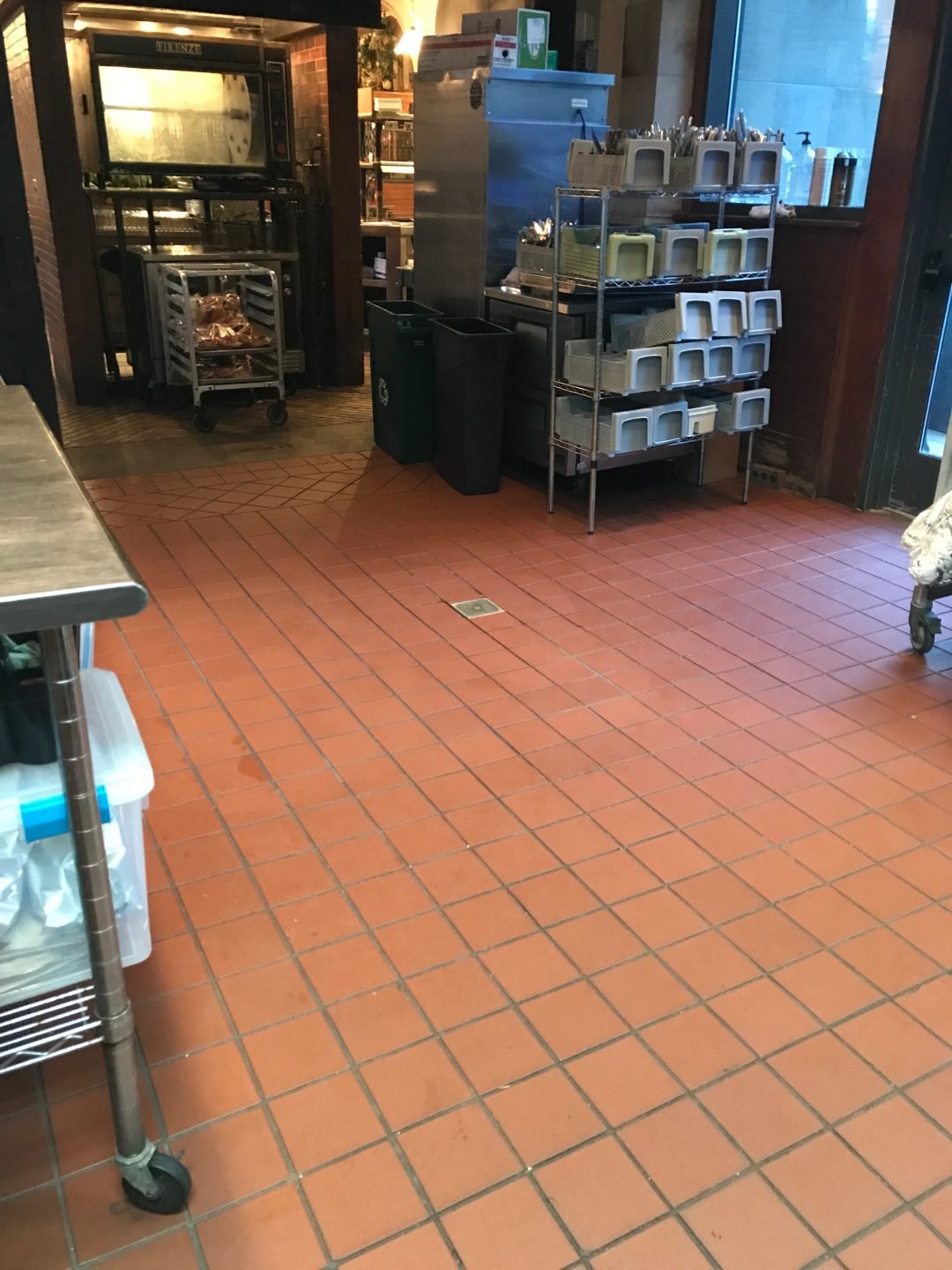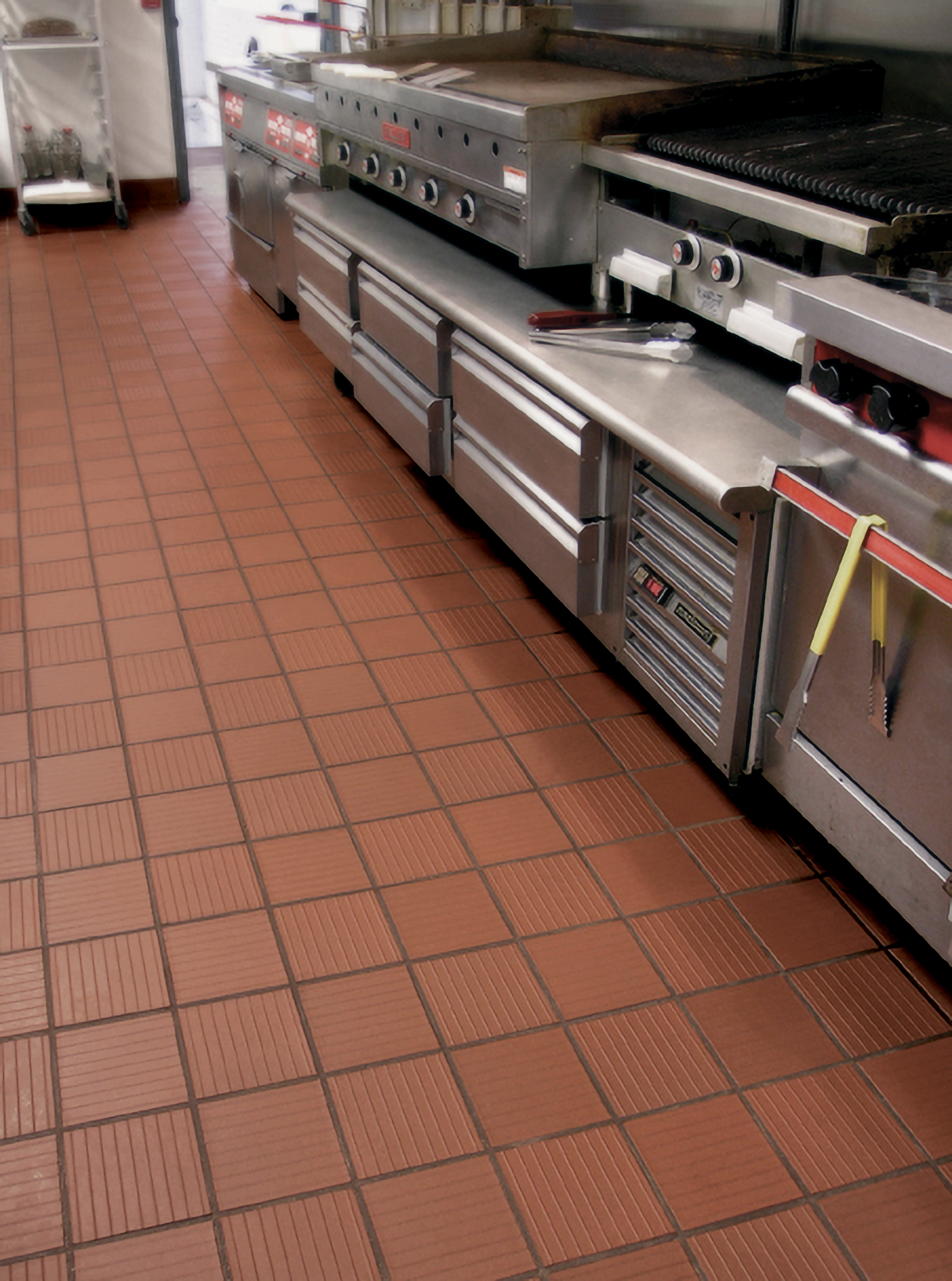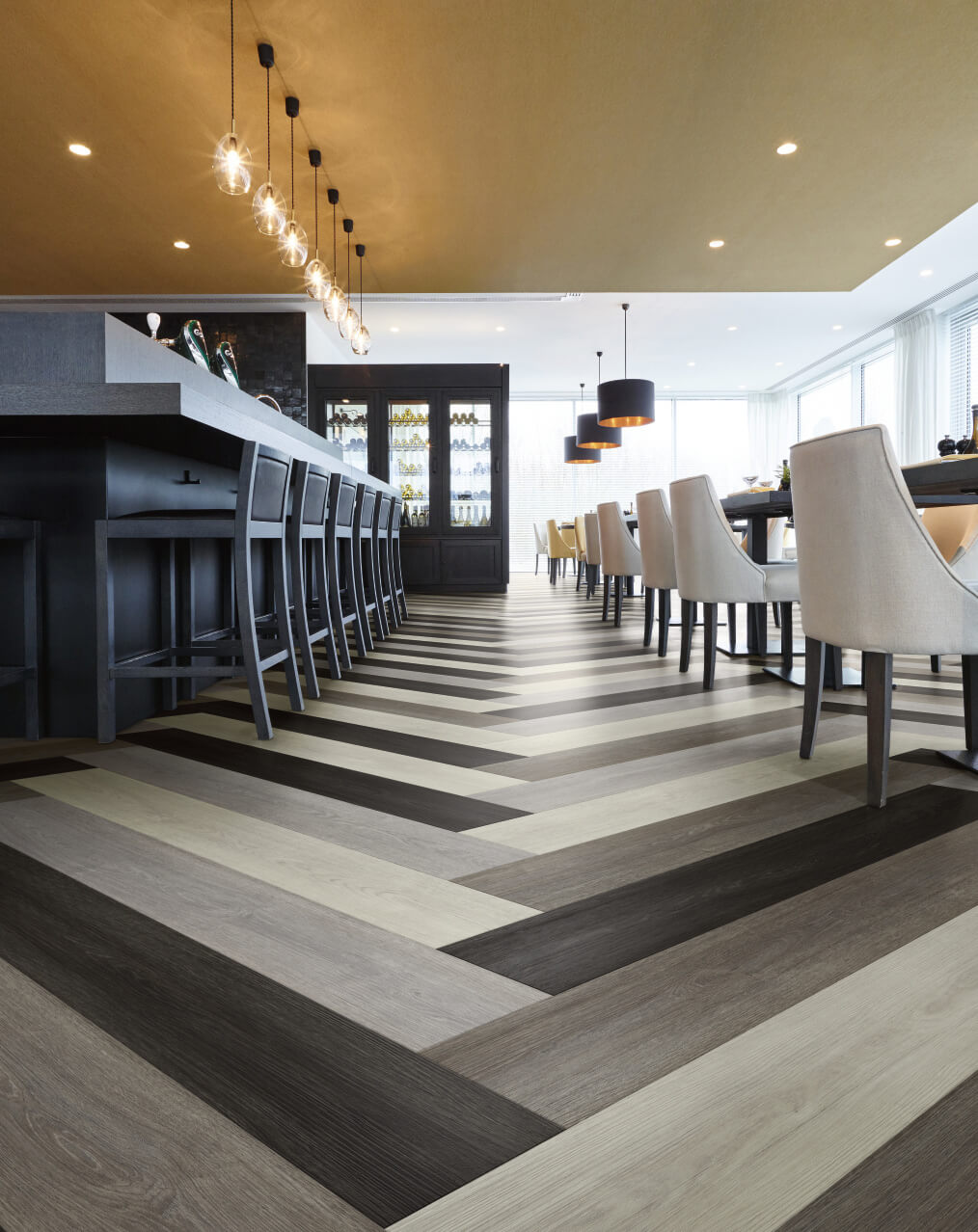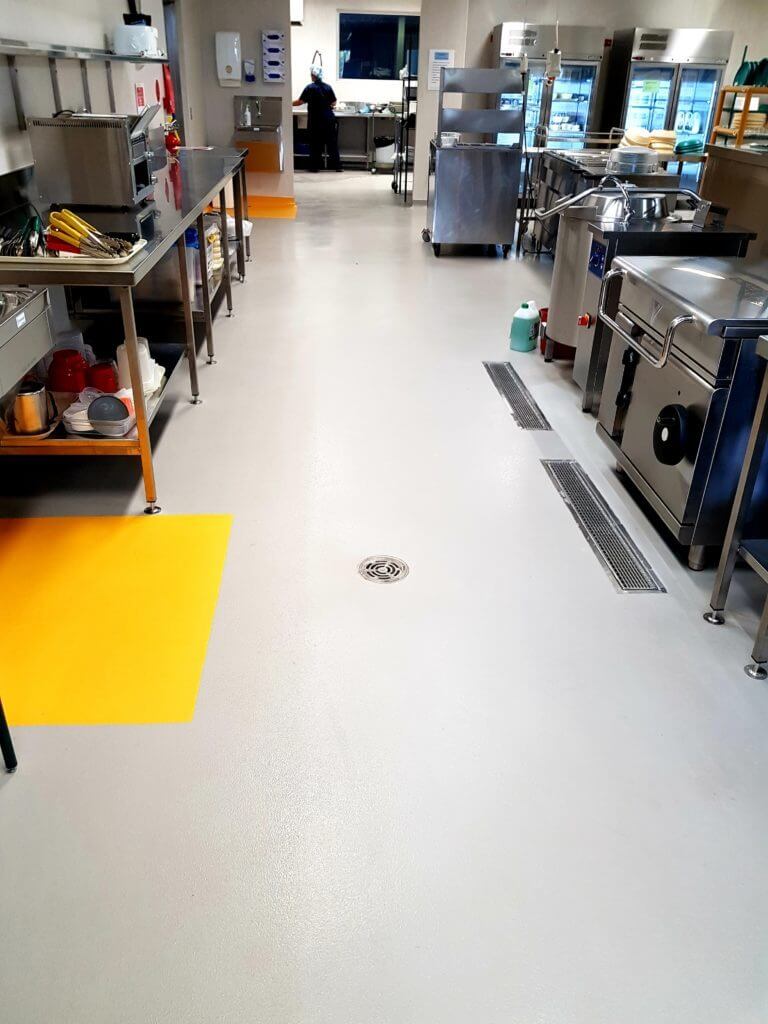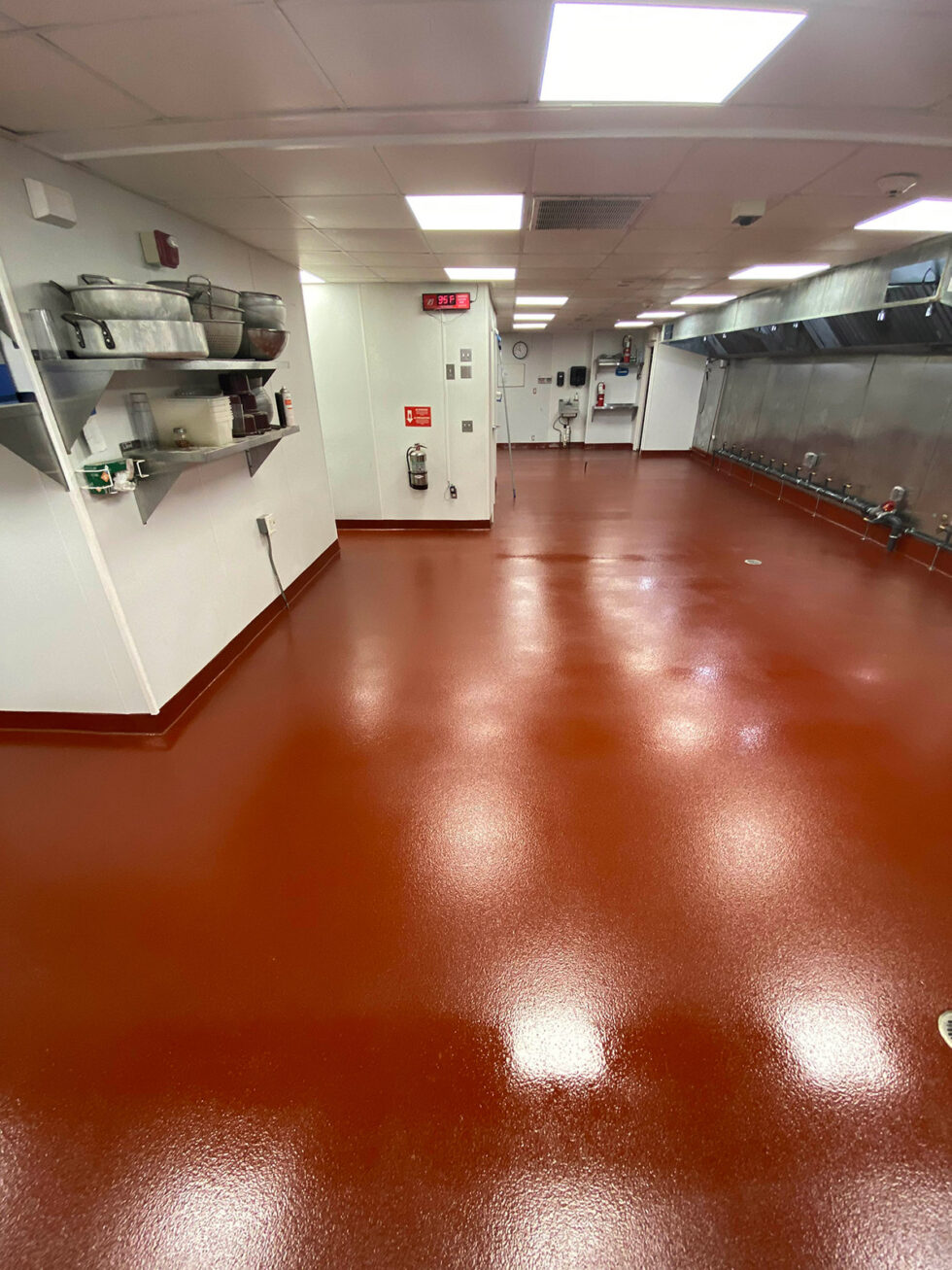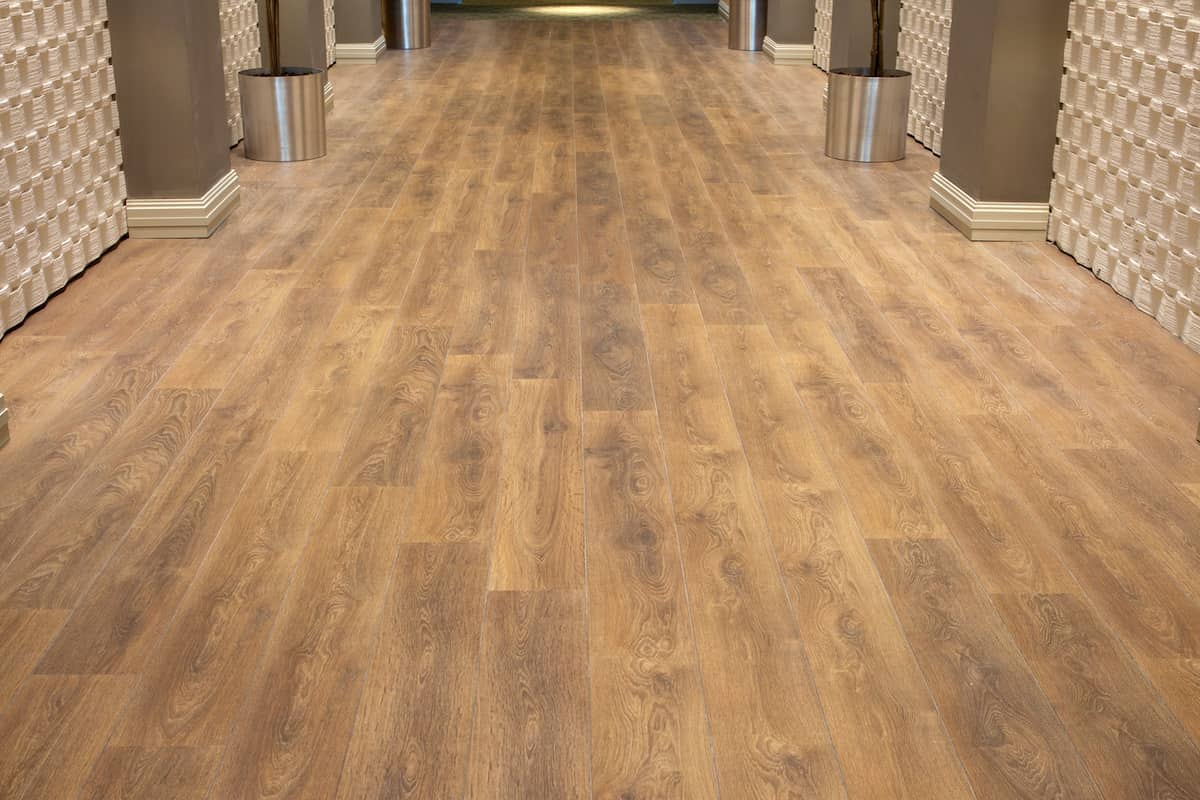Commercial grade tile flooring is designed to withstand high traffic and heavy use, making it an ideal choice for various commercial settings such as offices, retail stores, hospitals, and restaurants. Unlike residential tile flooring, commercial grade tiles are engineered for durability, longevity, and ease of maintenance.
Durability and Strength
Commercial-grade tile flooring is known for its exceptional durability and strength. These tiles are manufactured to meet the rigorous demands of commercial environments, where foot traffic, heavy equipment, and frequent cleaning are everyday occurrences. The durability of commercial tiles ensures that they can withstand wear and tear over many years, making them a cost-effective option for businesses.
One of the key features contributing to the durability of commercial grade tiles is their composition. Most commercial tiles are made from materials like porcelain or ceramic, which are fired at high temperatures to achieve a dense and hard surface. This process makes the tiles resistant to cracking, chipping, and scratching, even under heavy use.
Additionally, commercial grade tiles often come with a higher PEI (Porcelain Enamel Institute) rating compared to residential tiles. The PEI rating measures a tile’s ability to resist abrasion, with higher ratings indicating greater durability. Commercial tiles typically have a PEI rating of 4 or 5, making them suitable for high-traffic areas.
Another factor contributing to the strength of commercial grade tiles is their thickness. Commercial tiles are generally thicker than residential tiles, providing additional stability and resistance to impact. This extra thickness also helps the tiles endure the weight of heavy furniture and equipment without cracking.
The manufacturing process of commercial grade tiles also includes rigorous quality control measures to ensure uniformity and consistency. Each tile is inspected for defects, ensuring that only the highest quality products reach the market. This attention to detail ensures that commercial tiles maintain their integrity and appearance over time.
Overall, the durability and strength of commercial grade tile flooring make it an excellent investment for businesses looking for a long-lasting and reliable flooring solution.

Aesthetic Versatility
In addition to their durability, commercial grade tiles offer a wide range of aesthetic options to suit various design preferences and commercial environments. Whether you’re aiming for a sleek and modern look or a classic and timeless appeal, there’s a commercial tile option to meet your needs.
One of the significant advantages of commercial grade tile flooring is the variety of designs, colors, and textures available. Tiles can mimic the appearance of natural stone, wood, concrete, and other materials, allowing for endless design possibilities. This versatility enables businesses to create unique and visually appealing spaces that reflect their brand and style.
Commercial tiles come in various sizes and shapes, from traditional squares and rectangles to hexagons and other geometric patterns. This variety allows for creative installation patterns, such as herringbone, basket weave, and diagonal layouts, adding visual interest to the floor.
The surface finish of commercial tiles can also be customized to achieve different looks and functionalities. Options include glossy, matte, textured, and slip-resistant finishes. Glossy tiles add a sleek and polished look, while matte tiles offer a more understated and contemporary appeal. Textured and slip-resistant finishes are ideal for areas where safety and traction are essential, such as kitchens and bathrooms.
Furthermore, commercial tiles can be used to create intricate designs and mosaics, adding a touch of artistry and elegance to the space. Custom tile designs can be commissioned to incorporate company logos, unique patterns, or thematic elements, making the flooring a standout feature.
The aesthetic versatility of commercial grade tiles extends beyond the visual aspects. Tiles can also enhance the acoustic properties of a space by reducing noise levels and providing a more comfortable environment for employees and customers.
Ease of Maintenance
One of the primary reasons businesses opt for commercial grade tile flooring is its ease of maintenance. Keeping a commercial space clean and well-maintained is crucial for creating a professional and welcoming environment, and commercial tiles make this task straightforward and manageable.
Commercial grade tiles are non-porous, meaning they do not absorb liquids, dirt, or stains easily. This characteristic makes them highly resistant to spills and stains, which are common in commercial settings. In the event of a spill, it can be quickly wiped away without leaving a permanent mark, ensuring the floor remains clean and hygienic.
Regular cleaning of commercial grade tile flooring typically involves sweeping or vacuuming to remove loose dirt and debris, followed by mopping with a mild detergent or tile cleaner. Because the tiles are resistant to stains and moisture, there is no need for intensive cleaning methods or harsh chemicals. This makes the cleaning process efficient and cost-effective.
In addition to being easy to clean, commercial grade tiles are also resistant to mold, mildew, and bacteria growth. This resistance is especially important in environments like hospitals, restaurants, and public restrooms, where maintaining a high level of cleanliness is essential. The tiles’ non-porous surface prevents the growth of harmful microorganisms, contributing to a healthier indoor environment.
Another advantage of commercial grade tile flooring is its long-term maintenance. Unlike other flooring materials that may require frequent refinishing, polishing, or resealing, commercial tiles retain their appearance and functionality with minimal upkeep. This low-maintenance aspect reduces the overall cost of ownership and the time spent on floor care.
Furthermore, commercial tiles are highly durable and resistant to wear, meaning they do not need to be replaced as frequently as other flooring options. This longevity not only saves money on replacement costs but also minimizes disruption to business operations.
Safety and Hygiene Considerations
Safety and hygiene are critical factors in choosing flooring for commercial spaces. Commercial grade tile flooring excels in both areas, offering features that contribute to a safe and healthy environment for employees, customers, and visitors.
One of the key safety features of commercial grade tiles is their slip resistance. Many commercial tiles are designed with textured surfaces or slip-resistant coatings to provide better traction and reduce the risk of slips and falls. This is particularly important in areas prone to moisture, such as kitchens, bathrooms, and entryways, where wet floors can be hazardous.
In addition to slip resistance, commercial grade tiles are fire-resistant, adding an extra layer of safety. Unlike some other flooring materials, tiles do not burn or emit toxic fumes when exposed to heat, making them a safer option in the event of a fire. This fire resistance can be crucial in environments like commercial kitchens and industrial settings.
Hygiene is another significant consideration for commercial flooring. Commercial grade tiles are non-porous and resistant to bacteria, mold, and mildew. This makes them an excellent choice for environments where cleanliness is paramount, such as healthcare facilities, food service establishments, and laboratories. The non-porous surface prevents the growth of harmful microorganisms, ensuring a hygienic environment.
Furthermore, commercial tiles are easy to disinfect and sanitize. Their smooth, non-porous surface can be cleaned with standard disinfectants, making it easier to maintain a germ-free space. This is particularly important in the current climate, where hygiene and cleanliness are top priorities for businesses.
The durability of commercial grade tiles also contributes to their safety and hygiene. Their resistance to wear and damage means that the surface remains intact and smooth, without cracks or crevices where dirt and bacteria can accumulate. This helps maintain a clean and safe environment over the long term.
Cost-Effectiveness and Longevity
Investing in commercial grade tile flooring can be a cost-effective choice for businesses, thanks to the tiles’ longevity and low maintenance requirements. While the initial cost of commercial tiles may be higher than some other flooring options, the long-term benefits often outweigh the upfront investment.
One of the primary cost-saving aspects of commercial grade tile flooring is its durability. As mentioned earlier, commercial tiles are designed to withstand heavy traffic and wear, meaning they do not need to be replaced as frequently as other flooring materials. This longevity reduces the need for frequent replacements, saving businesses money over time.
In addition to their durability, commercial tiles are also low-maintenance. The ease of cleaning and minimal upkeep required means that businesses can save on maintenance costs. There is no need for specialized cleaning products or services, and the time spent on floor care is significantly reduced. This efficiency translates to lower operational costs and increased productivity.
The initial investment in commercial grade tiles is further justified by their aesthetic and functional benefits. The wide range of design options allows businesses to create visually appealing spaces that enhance their brand and attract customers. The functional benefits, such as slip resistance and hygiene, contribute to a safer and healthier environment, reducing the risk of accidents and improving overall well-being.
Furthermore, commercial grade tiles are often backed by extensive warranties from manufacturers, providing additional peace of mind and financial protection. These warranties typically cover issues such as defects, wear, and damage, ensuring that businesses receive a high-quality product that meets their needs.
When considering the total cost of ownership, commercial grade tile flooring emerges as a cost-effective solution. The combination of durability, low maintenance, aesthetic versatility, and safety features makes it a smart investment for businesses looking to maximize their flooring budget and create a long-lasting, high-quality space.
Installation Process of Commercial Grade Tile Flooring
Installing commercial grade tile flooring requires careful planning and execution to ensure a durable and aesthetically pleasing result. Whether you’re a business owner overseeing a renovation or a contractor undertaking the project, understanding the installation process is crucial.
The first step in the installation process is preparing the subfloor. The subfloor must be clean, level, and free of any debris or contaminants that could affect the adhesion of the tiles. Any cracks or imperfections should be repaired, and the surface should be thoroughly cleaned and dried.
Next, a suitable adhesive or mortar is selected based on the type of tile and the specific requirements of the commercial space. The adhesive is applied to the subfloor using a notched trowel, creating an even layer that will secure the tiles in place. It’s essential to follow the manufacturer’s instructions for the adhesive, including the recommended drying time.
The tiles are then laid out according to the desired pattern. This step requires precision and attention to detail to ensure that the tiles are evenly spaced and aligned. Spacers are used to maintain consistent gaps between the tiles, which will later be filled with grout. It’s important to periodically check the alignment and make any necessary adjustments as the installation progresses.
Once the tiles are in place, the adhesive must be allowed to set for the recommended time before proceeding with grouting. Grout is applied to the gaps between the tiles using a rubber float, ensuring that it is evenly distributed and any excess is removed. The grout is then left to cure for the specified time, during which the tiles should be kept clean and dry.
After the grout has cured, the tiles are thoroughly cleaned to remove any remaining residue. A final inspection is conducted to ensure that the installation is complete and meets the required standards. If any issues are identified, they should be addressed promptly to prevent future problems.
The installation process of commercial grade tile flooring can be complex and time-consuming, but it’s essential for achieving a high-quality result. Hiring experienced professionals can help ensure that the installation is done correctly and efficiently, minimizing disruptions to business operations.
Common Mistakes to Avoid When Installing Commercial Grade Tile Flooring
Avoiding common mistakes during the installation of commercial grade tile flooring can prevent costly repairs and ensure a successful outcome. Understanding these pitfalls and taking proactive measures can save time, money, and frustration.
One of the most common mistakes is inadequate subfloor preparation. Failing to properly clean, level, and repair the subfloor can result in poor adhesion and uneven tiles. It’s crucial to spend the necessary time on subfloor preparation to create a solid foundation for the tiles.
Choosing the wrong adhesive or mortar is another common error. Different types of tiles and commercial environments require specific adhesives. Using an inappropriate adhesive can lead to tiles loosening or shifting over time. Always follow the manufacturer’s recommendations for the best results.
Incorrectly spacing the tiles is a mistake that can affect both the appearance and durability of the floor. Inconsistent spacing can lead to uneven grout lines and tiles that are not properly aligned. Using spacers and checking the alignment frequently during installation can help maintain uniformity.
Rushing the installation process is another common mistake. Each step, from applying adhesive to grouting, requires sufficient time for the materials to set and cure. Skipping or shortening these waiting periods can compromise the integrity of the floor. Patience and attention to detail are essential for a successful installation.
Neglecting to clean the tiles after grouting can result in a hazy or discolored surface. It’s important to remove any grout residue promptly and thoroughly clean the tiles. Using the right cleaning products and techniques can ensure a pristine finish.
Finally, failing to conduct a final inspection and address any issues can lead to long-term problems. A thorough inspection allows for the identification and correction of any imperfections or errors before they become major issues. Taking the time to review the installation can ensure a high-quality and durable floor.
What are the benefits of commercial grade tile flooring?
Commercial grade tile flooring offers numerous benefits, including exceptional durability, aesthetic versatility, ease of maintenance, and safety features. These tiles are designed to withstand heavy traffic and wear, making them ideal for commercial environments. They come in a wide range of designs, colors, and textures, allowing for customized and visually appealing spaces. Additionally, commercial tiles are low-maintenance, resistant to stains and bacteria, and provide slip resistance and fire safety.
How do I choose the right commercial grade tile for my business?
Choosing the right commercial grade tile involves considering factors such as durability, design, maintenance requirements, and safety features. Evaluate the level of foot traffic and specific needs of your commercial space to select a tile with an appropriate PEI rating and thickness. Consider the aesthetic goals and choose a design that complements your brand and style. Additionally, prioritize tiles with slip-resistant and fire-resistant properties for safety. Consulting with a professional can help you make an informed decision.
How do I maintain commercial grade tile flooring?
Maintaining commercial grade tile flooring involves regular cleaning and occasional maintenance. Sweep or vacuum the floor daily to remove dirt and debris. Mop weekly with a mild detergent or tile cleaner and dry the floor thoroughly. Periodically check for any damage or wear and address issues promptly. Sealing the tiles and grout can enhance their durability and resistance to stains. Following the manufacturer’s maintenance recommendations ensures the longevity and appearance of your tile flooring.
Can commercial grade tiles be used in high-moisture areas?
Yes, commercial grade tiles are suitable for high-moisture areas such as bathrooms, kitchens, and entryways. Their non-porous surface makes them resistant to moisture and stains, and many commercial tiles come with slip-resistant finishes for added safety. Proper installation and sealing are essential to prevent water infiltration and ensure the tiles remain durable and hygienic in wet environments.
What is the installation process for commercial grade tile flooring?
The installation process for commercial grade tile flooring involves several steps: preparing the subfloor, applying adhesive, laying the tiles, grouting, and cleaning. The subfloor must be clean, level, and repaired. Adhesive is applied to secure the tiles, which are laid out in the desired pattern with consistent spacing. After the adhesive sets, grout is applied to the gaps between the tiles. Once the grout cures, the tiles are cleaned, and a final inspection is conducted to ensure a high-quality installation.
What should I consider when hiring a professional for tile installation?
When hiring a professional for tile installation, consider their experience, credentials, and reputation. Look for contractors with a proven track record in commercial tile installations and positive reviews from previous clients. Ensure they are licensed, insured, and familiar with the specific requirements of your commercial space. Request a detailed quote and timeline for the project, and ask about their process for handling potential issues. A reliable and experienced professional can ensure a successful and efficient installation.
Related Posts:
